


This walk: 2010-1-4. Widecombe-in-the-Moor, yew tree, brew or ale house, Church House, The Old Inn, lych gate, coffin stone, 15" naval shell, National Trust signs, St Pancras Church - The Cathedral on the Moor, snowdrops, wild daffodils, Widecombe cross, the Widecombe sign (monolith), Uncle Tom Cobley etc., village green, gatepost with an incised cross, "wedge-and-groove" marks, crystals, sunken lane, Dartmoor ponies, lichens, swaled gorse, slotted gateposts, fungus on fallen tree trunk, sundial, church screen inserts, two-way plough, Tucker Stone, bell clappers, stained glass windows, church kissing gate.
This walk can be browsed in combination with a walk on 5th Nov. 2009, for extra photos in and around the village and particularly inside the church.
The Widecombe-in the-Moor web site
Walk details below - Information about the route etc.
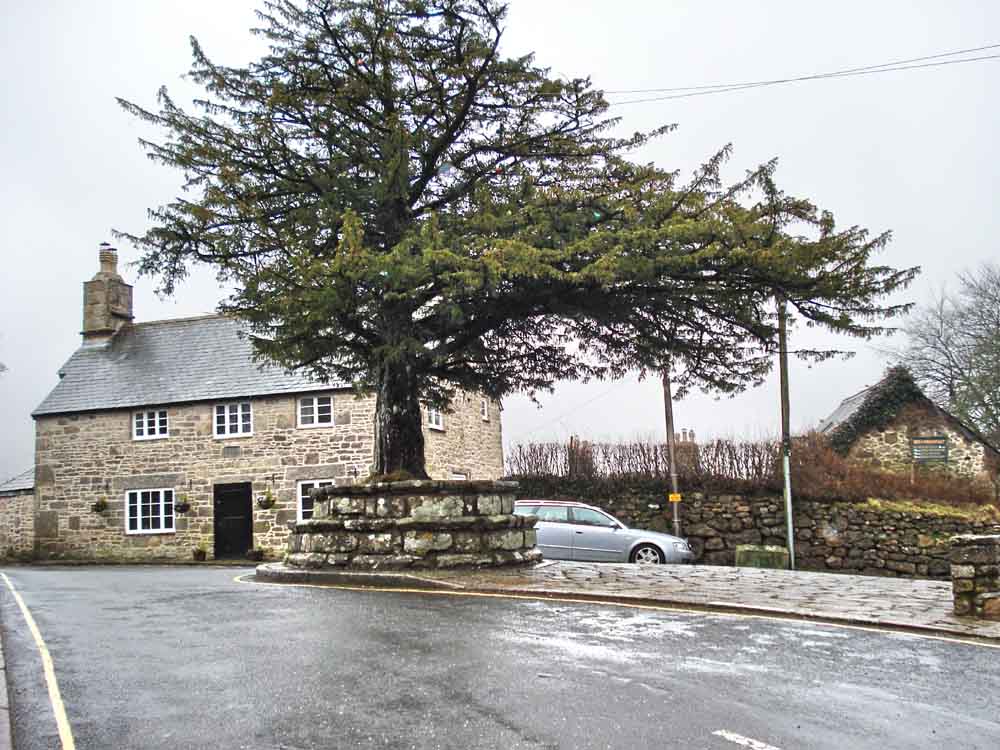
Yew tree, standing where the old village cross once stood.
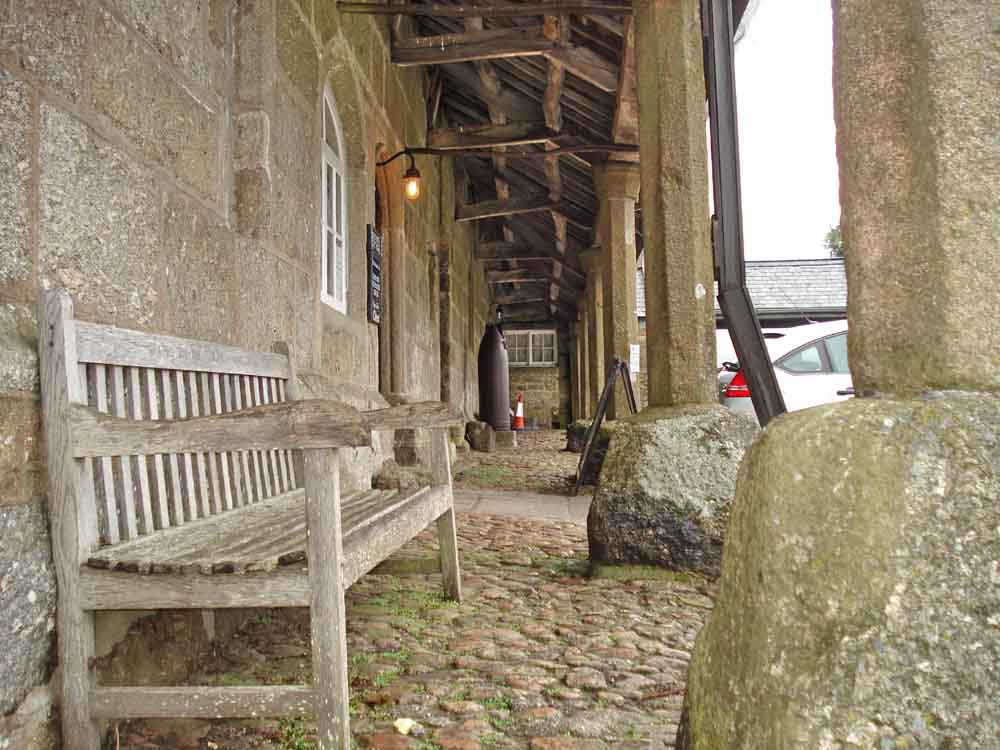
Covered "cloister" or walk-way outside the old brew/ale house etc, now a National Trust property.
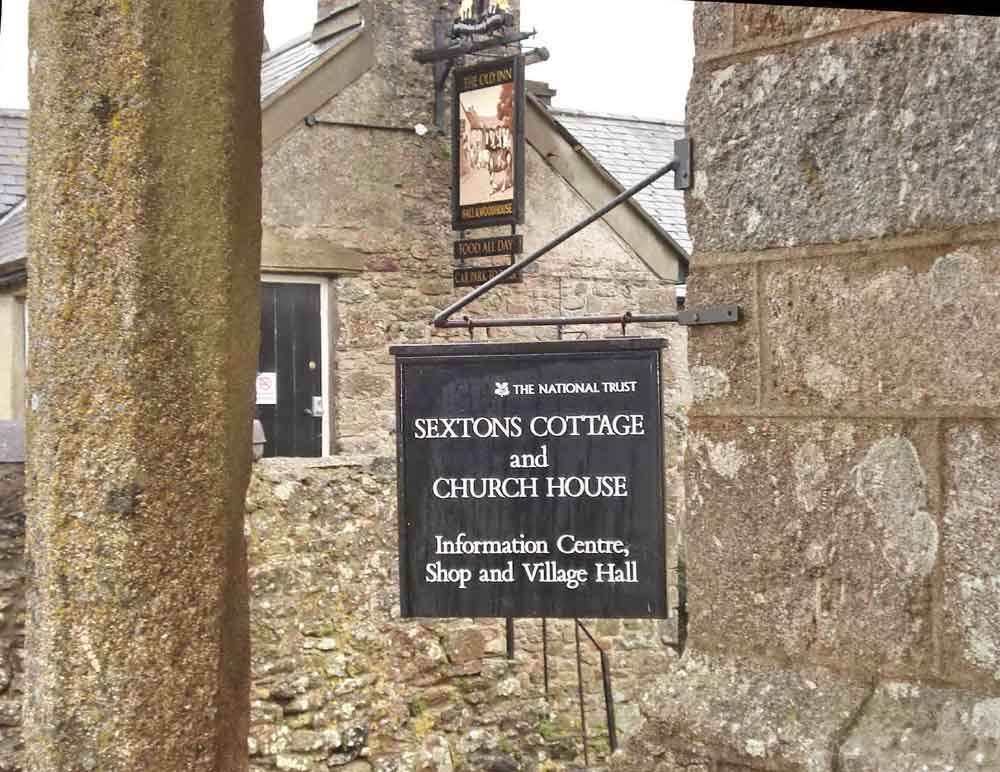
National Trust sign outside the old houses.
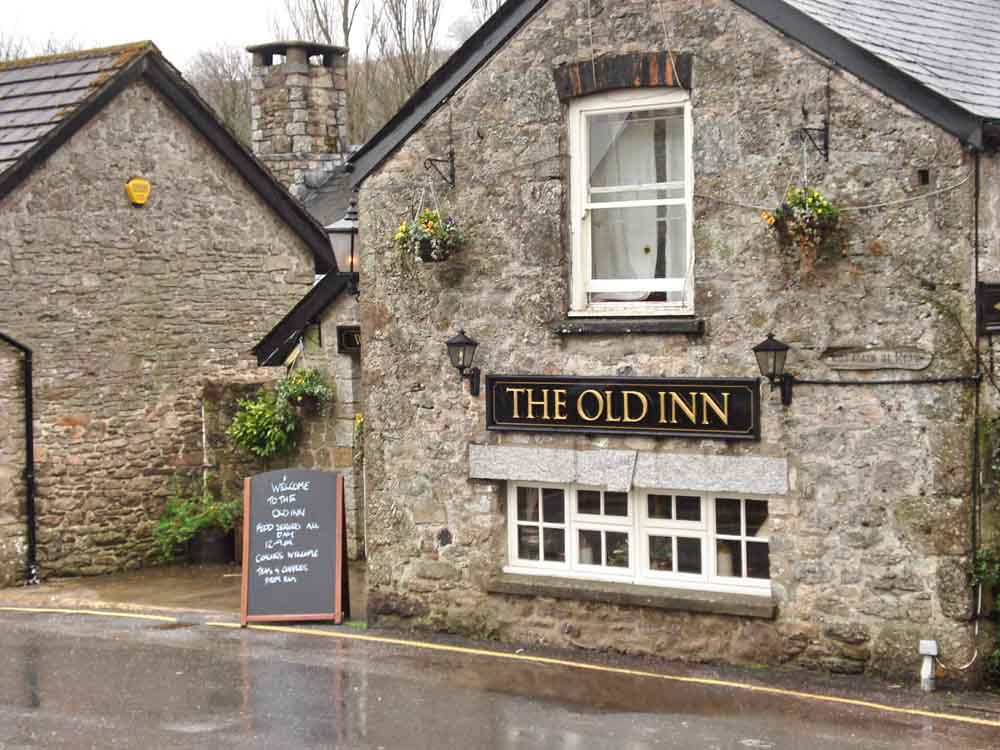
A view of The Old Inn: extensively damaged by fire in the 1970�s and subsequently re-furbished.

The lych gate and coffin stone.
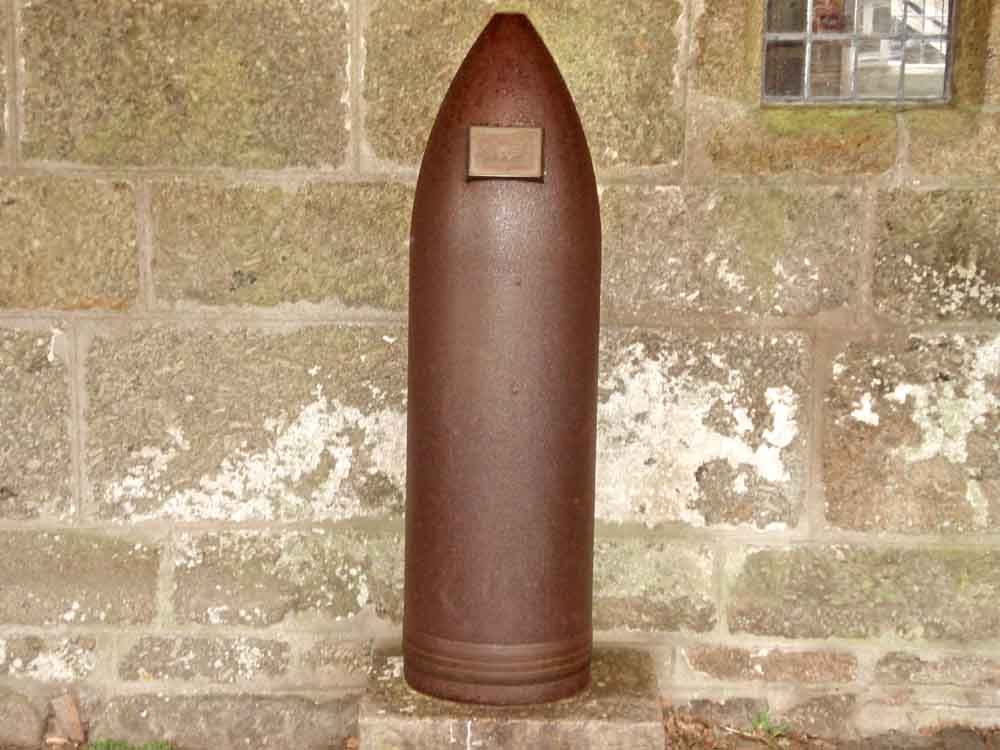
The 15-inch naval shell that was donated to the village by the National War Savings Committee for its effort in collecting sphagnum moss which, when dried, acts as a good absorbent (like cotton wool) and which has natural antiseptic qualities for treating wounds as used in WW1.

The sign on the shell.
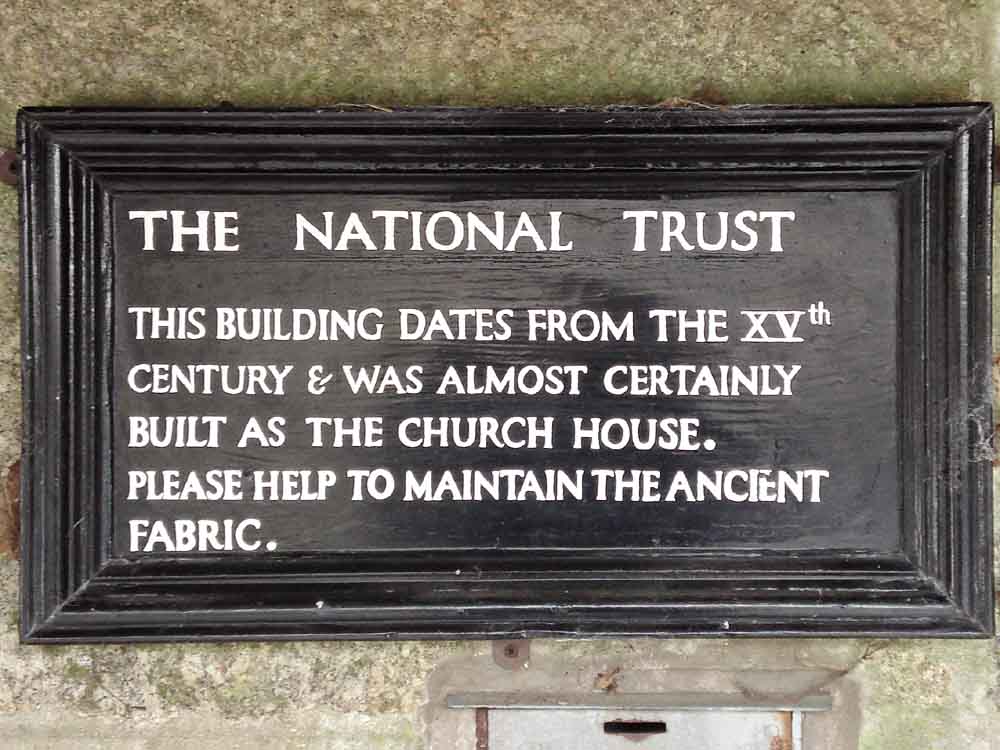
National Trust sign outside the Church House.
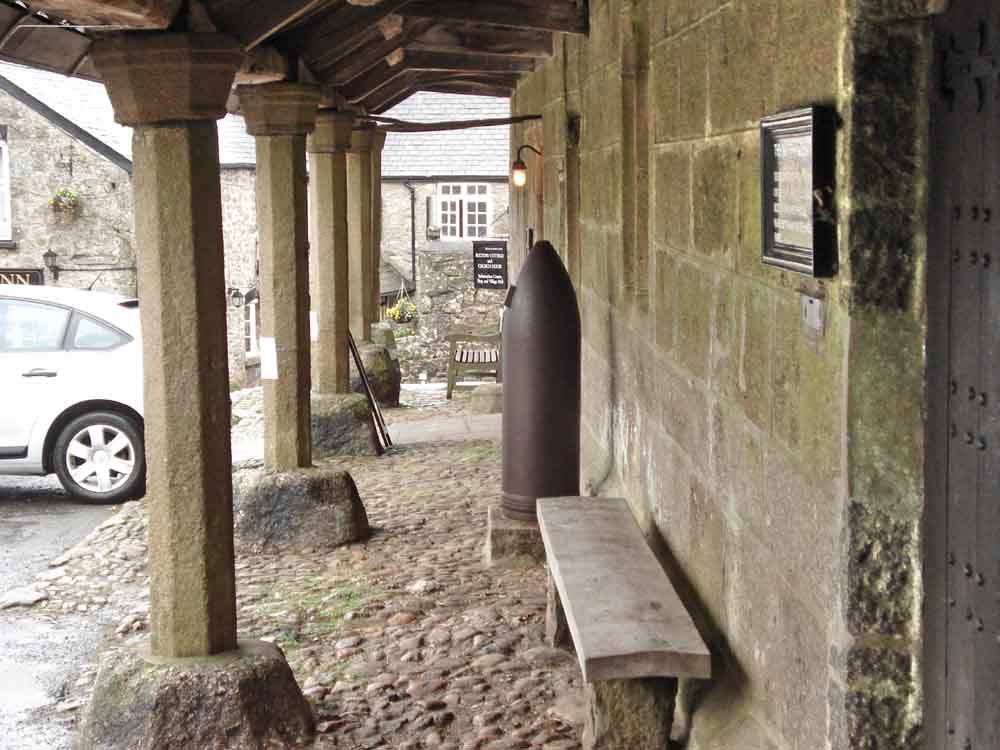
Looking the other way along the "cloister".
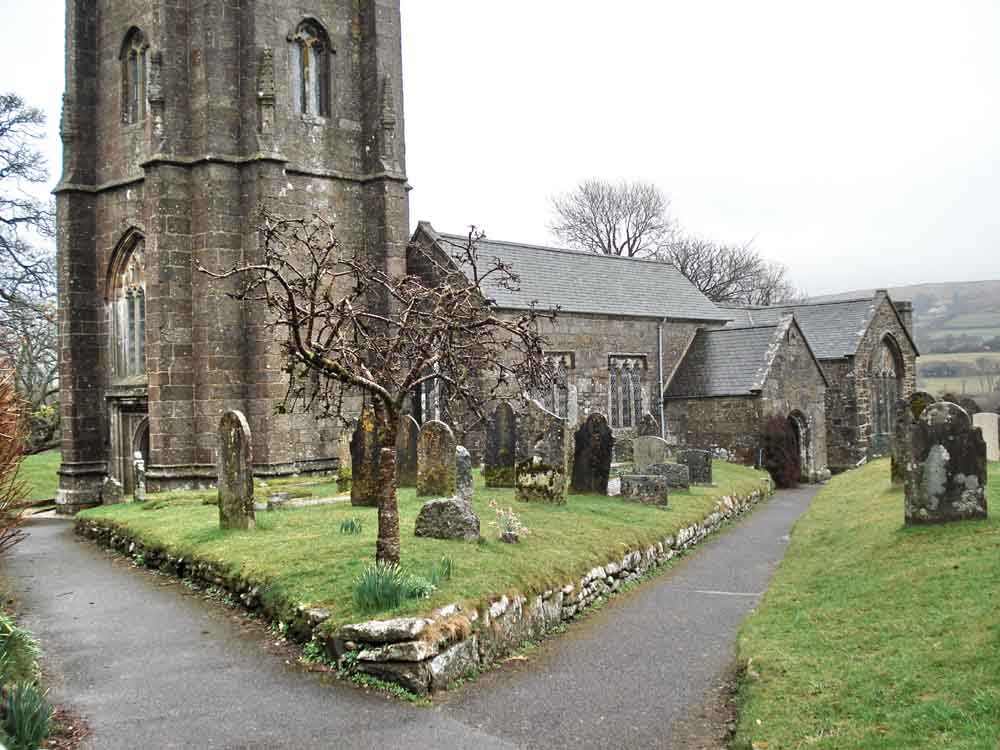
A view of St. Pancras Church, Widecombe - "The Cathedral of the Moor".
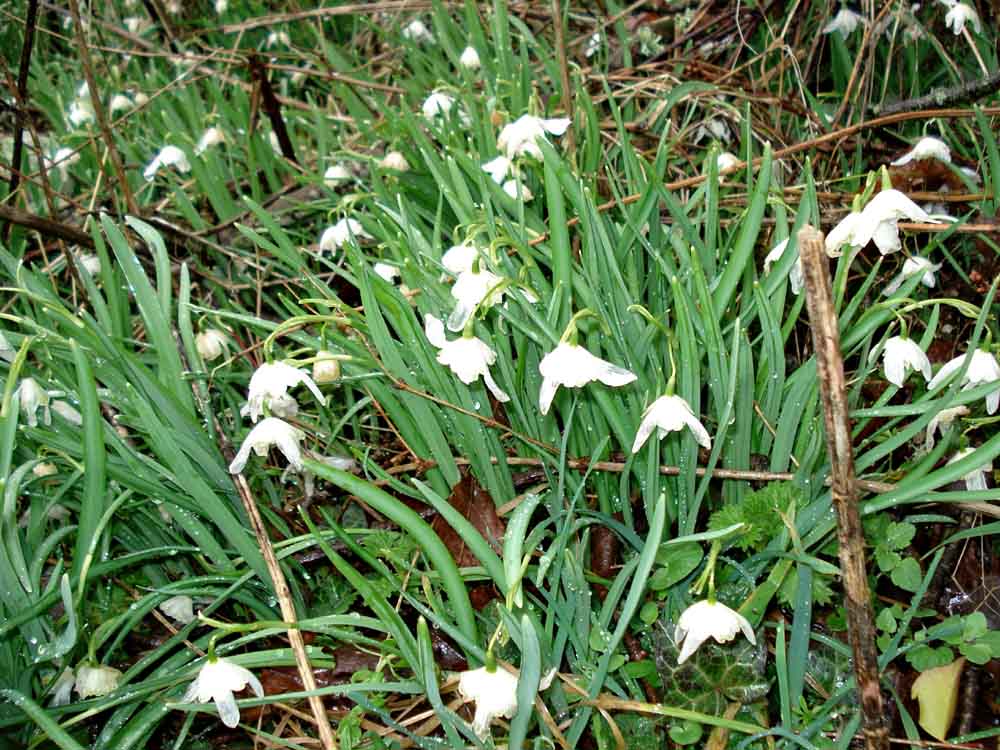
Snowdrops - Galanthus nivalis ..... see the time-lapse filming on this BBC web site.
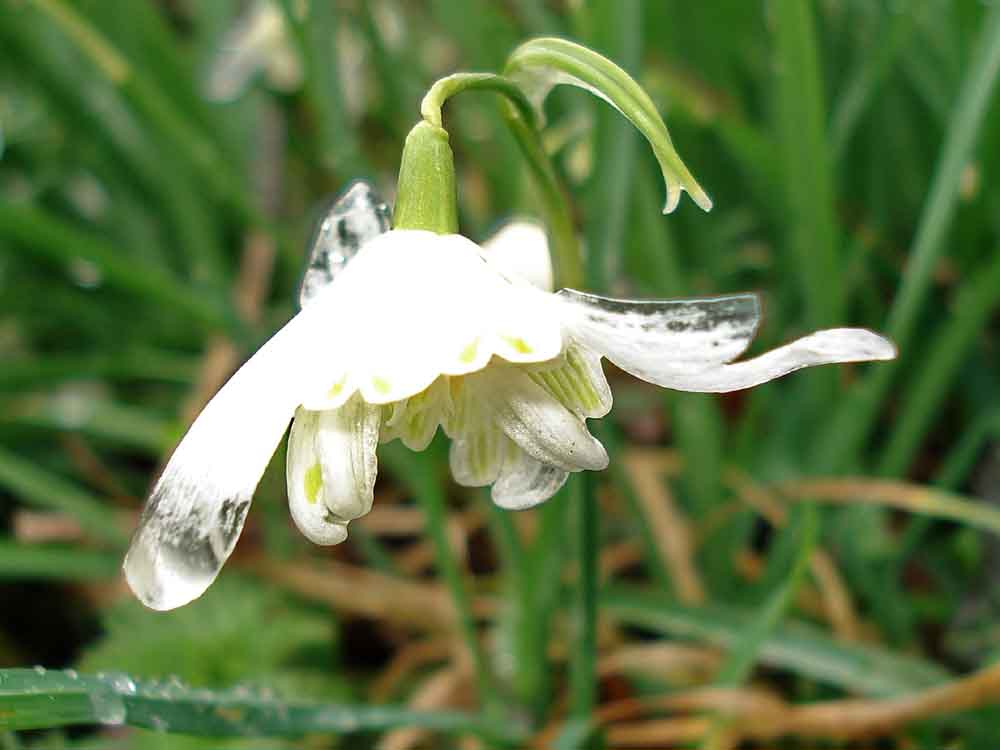
..... close-up.
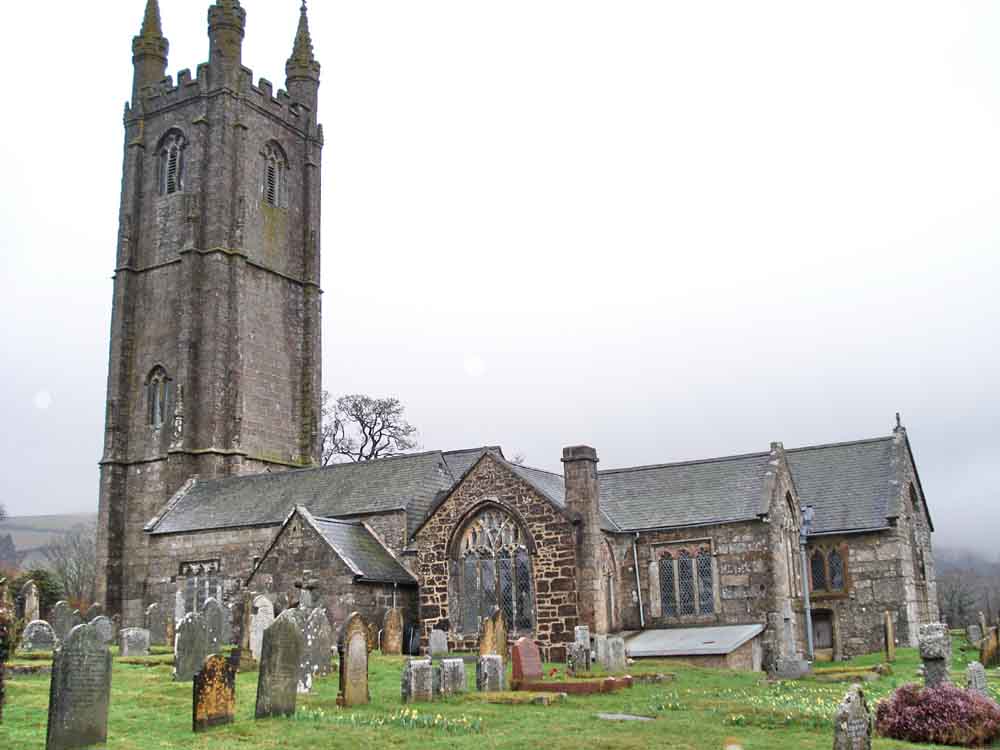
Another view of the church - why do I always cut off the tops of the pinnacles, with their small crosses?
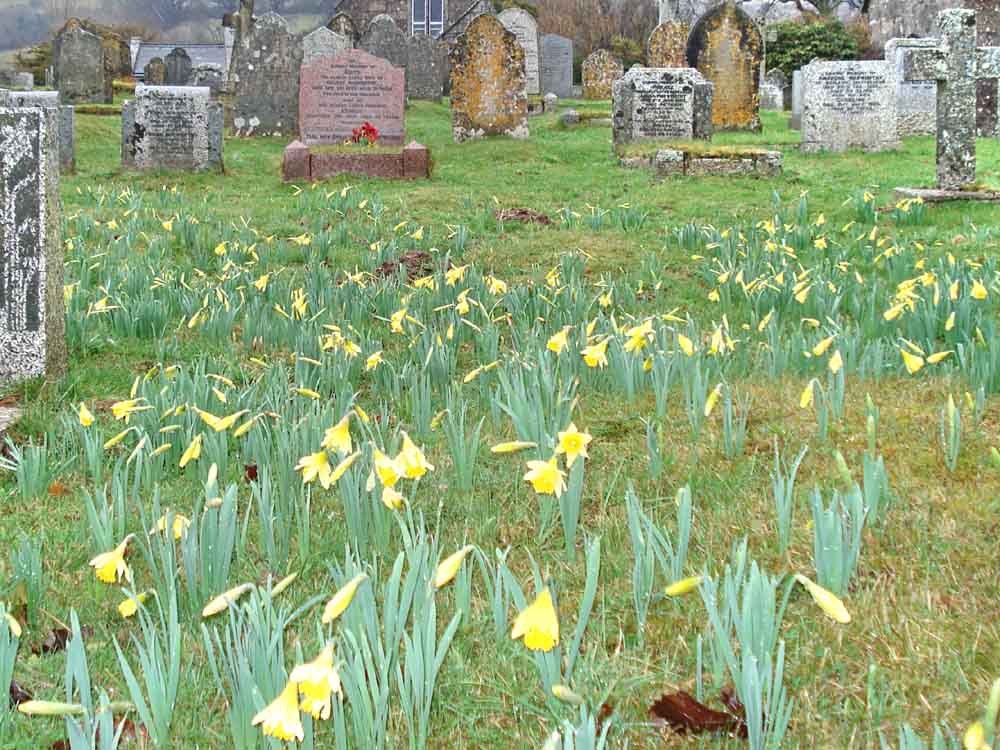
Wild daffodils, Narcissus pseudonarcissus, in the churchyard, also known as Lent lilies.

The old Widecombe Cross, outside the church door, facing the opposite direction to all the other crosses in the churchyard.
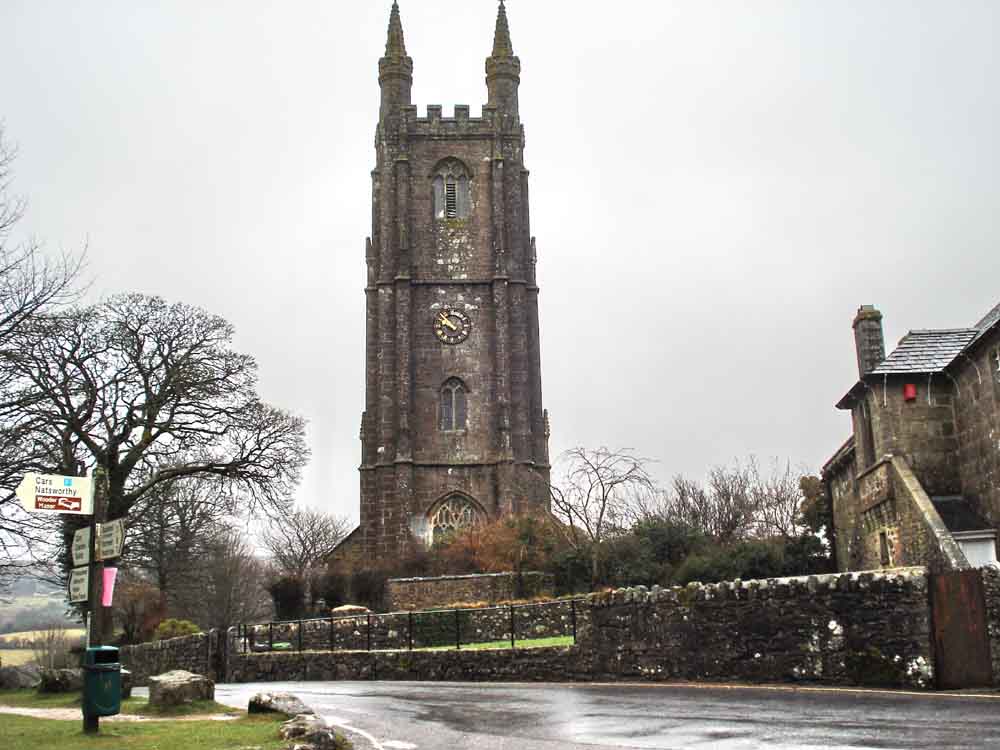
Widecombe church, minus its pinnacles again.
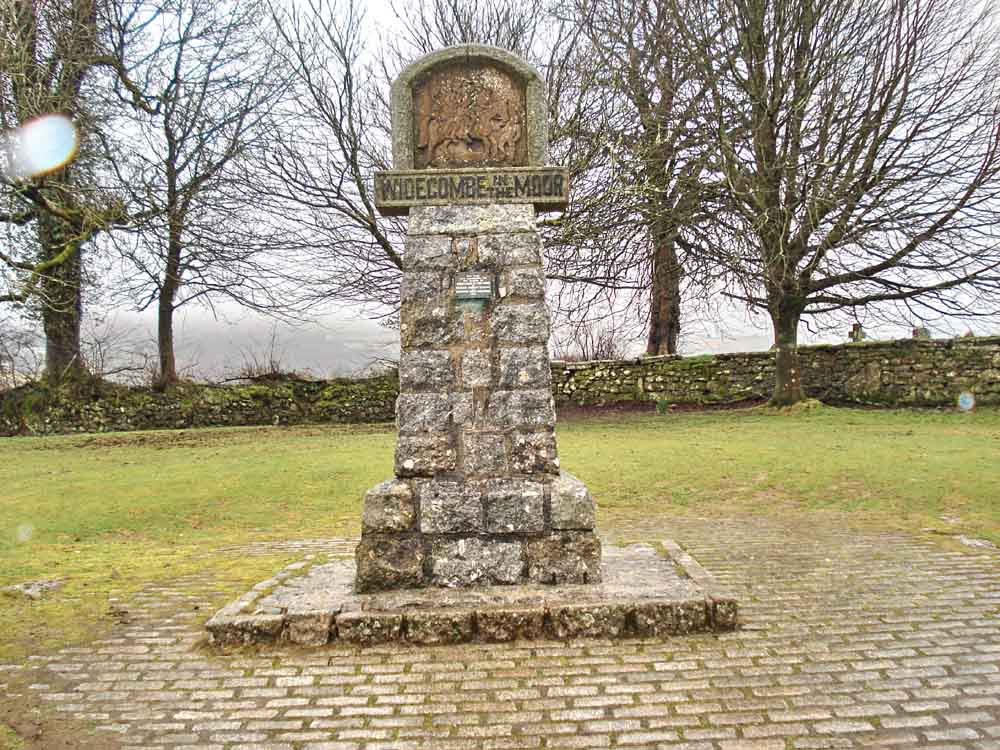
The monolith near the church, designed by Lady Sylvia Sayer, showing the characters of the Widecombe Fair song about Tom Cobley and his grey mare (Widecombe's own web site) .....

..... the top of the structure .....

..... the sign on it .....

..... and closer again - "With Bill Brewer, Jan Stewer, Peter Gurney, Peter Davy, Dan'l Whiddon, Harry Hawke, Old Uncle Tom Cobley and all (Wikipedia entry about the historical Tom Cobley).
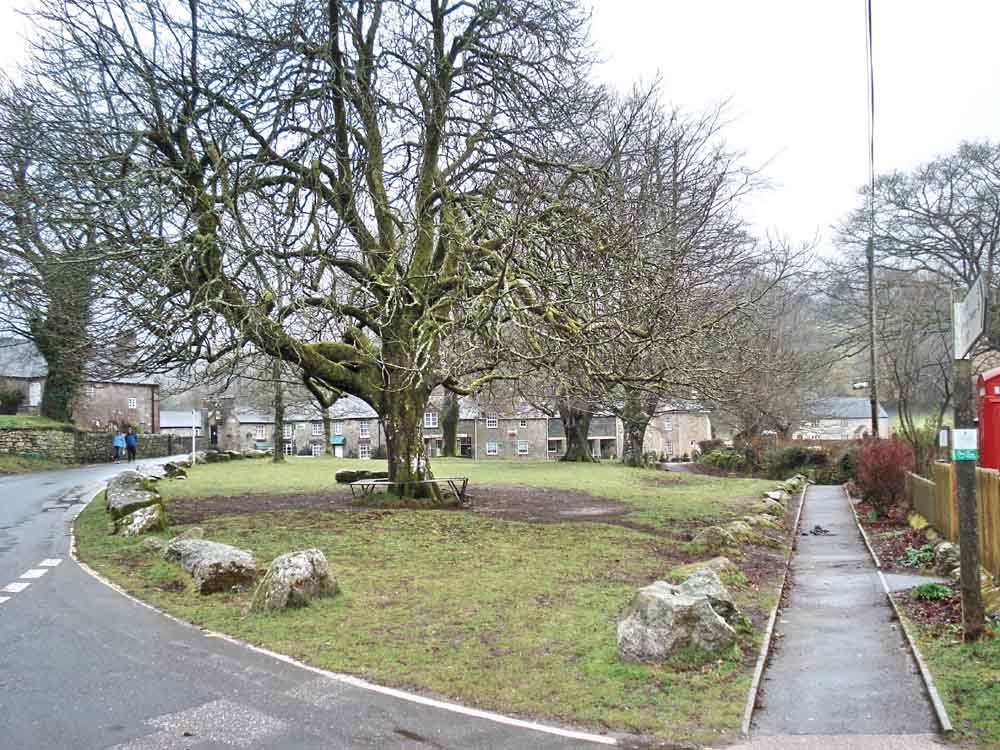
A view of the village green: it was used for archery practise in the days when this was compulsory by royal command to maintain an army of skilled archers for time of war.

An incised cross on a gatepost at approx. SX 76145 77060, at the entrance to the gated lane up to Kingshead Farm .....
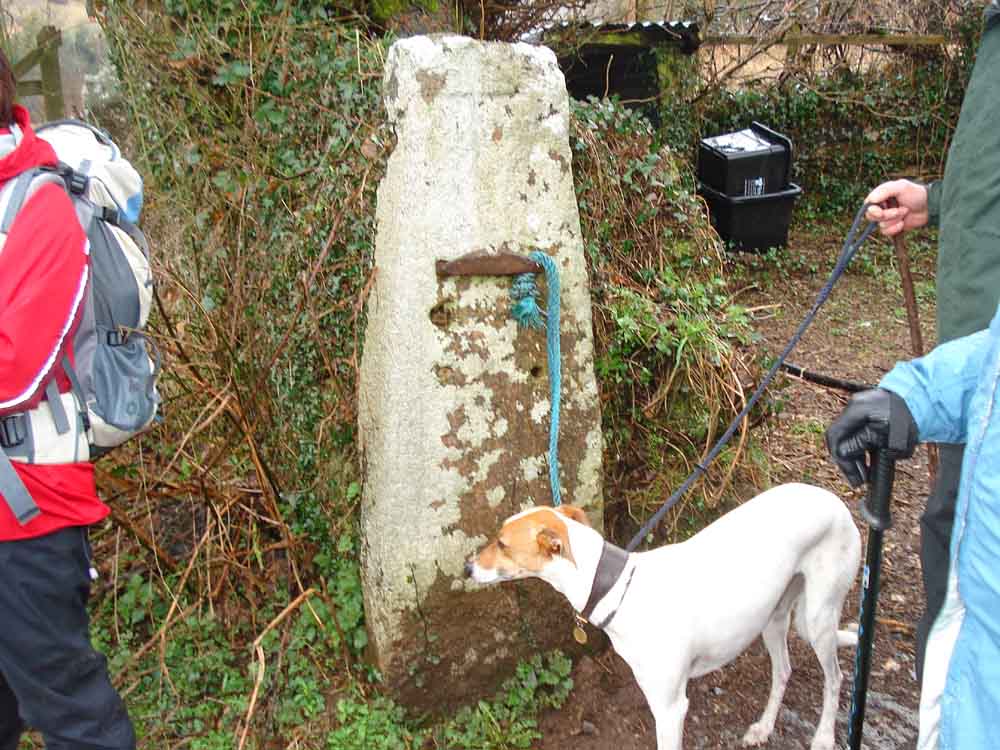
..... an overview.
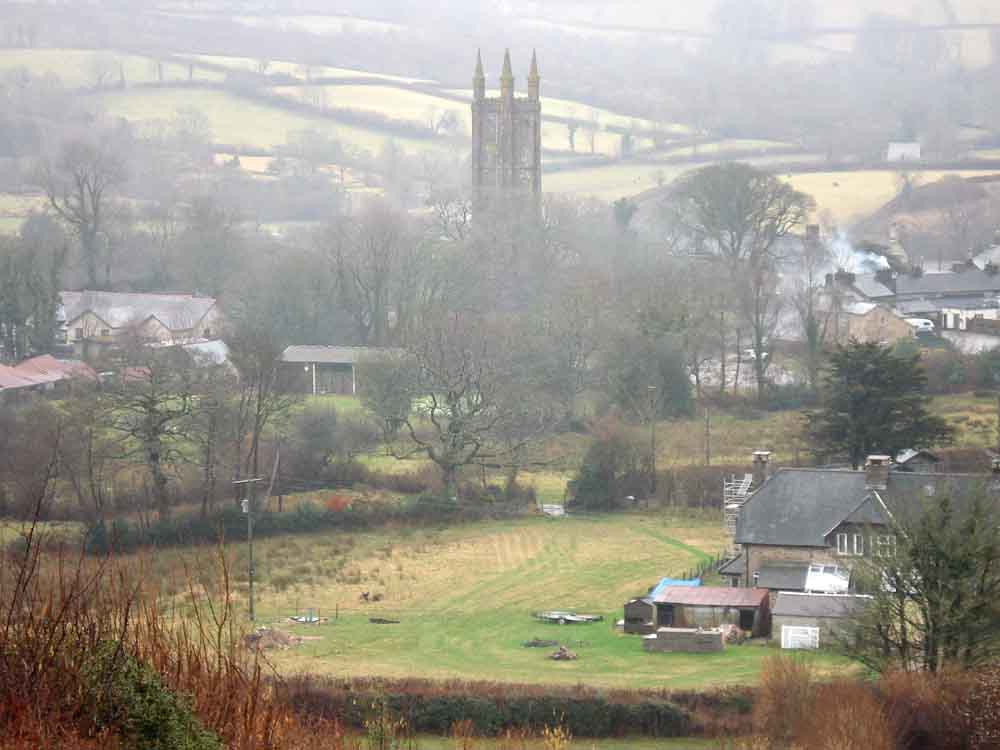
The Cathedral on the Moor.

An old gate post with marks of splitting by "wedge and groove" - the older method (than "feather and tare") of splitting rock by cutting a line of short grooves, inserting wooden wedges, wetting them with water and waiting for the expansion of the wood to take effect and split the rock .....
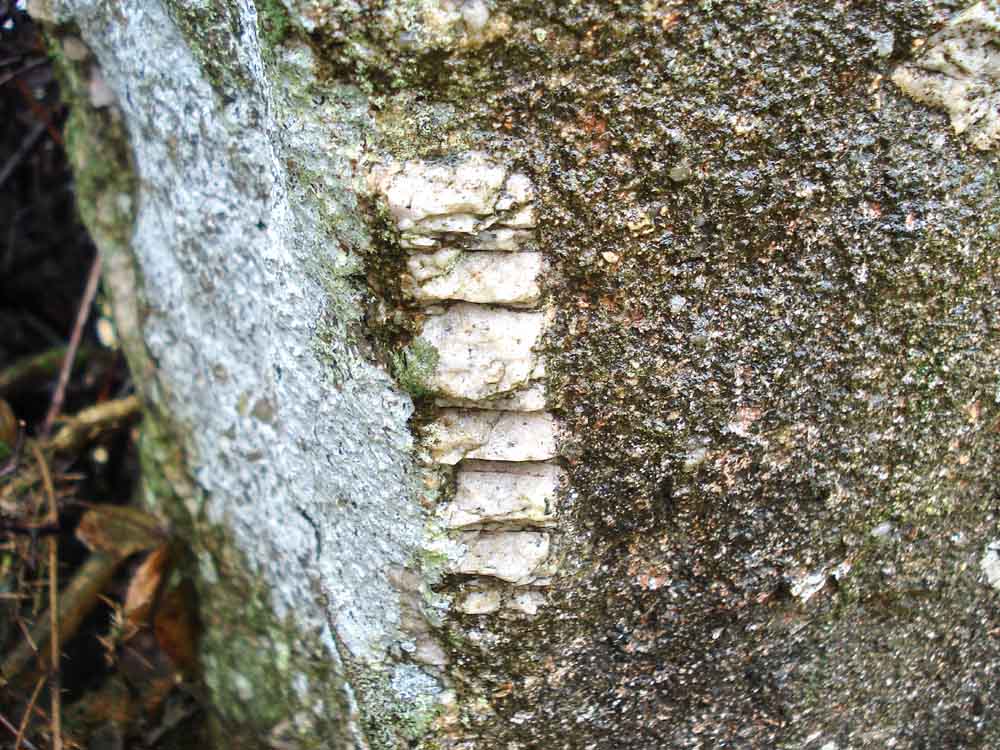
Large feldspar crystals (white plagioclase) in the same granite gatepost .....
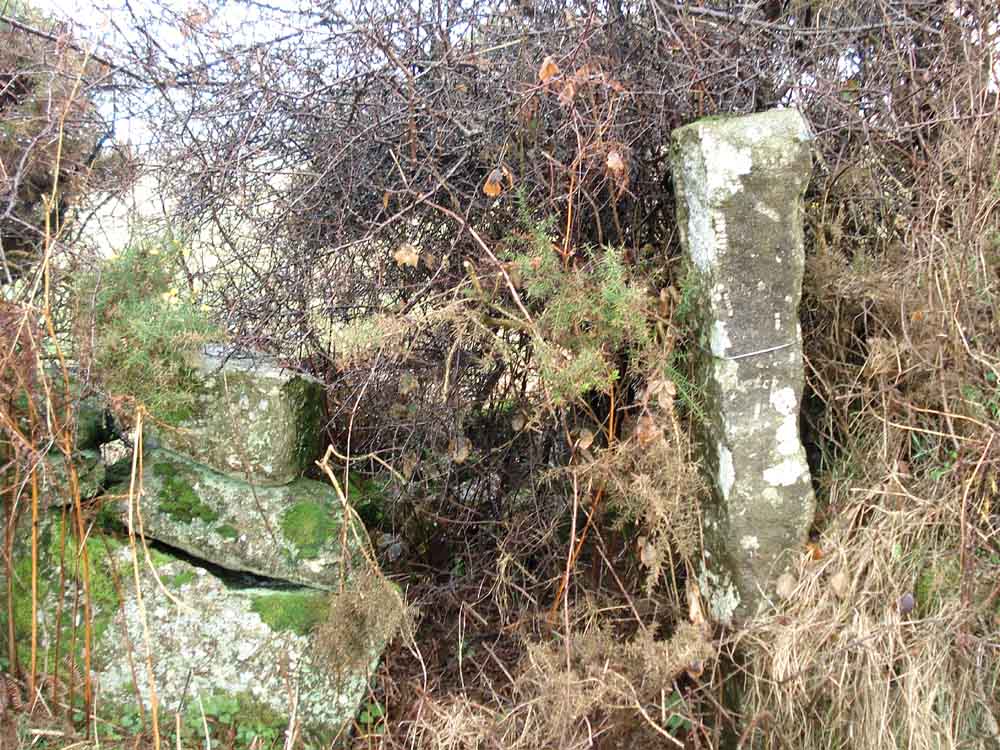
A general view of the gateway, now blocked up, with the gatepost on the right.
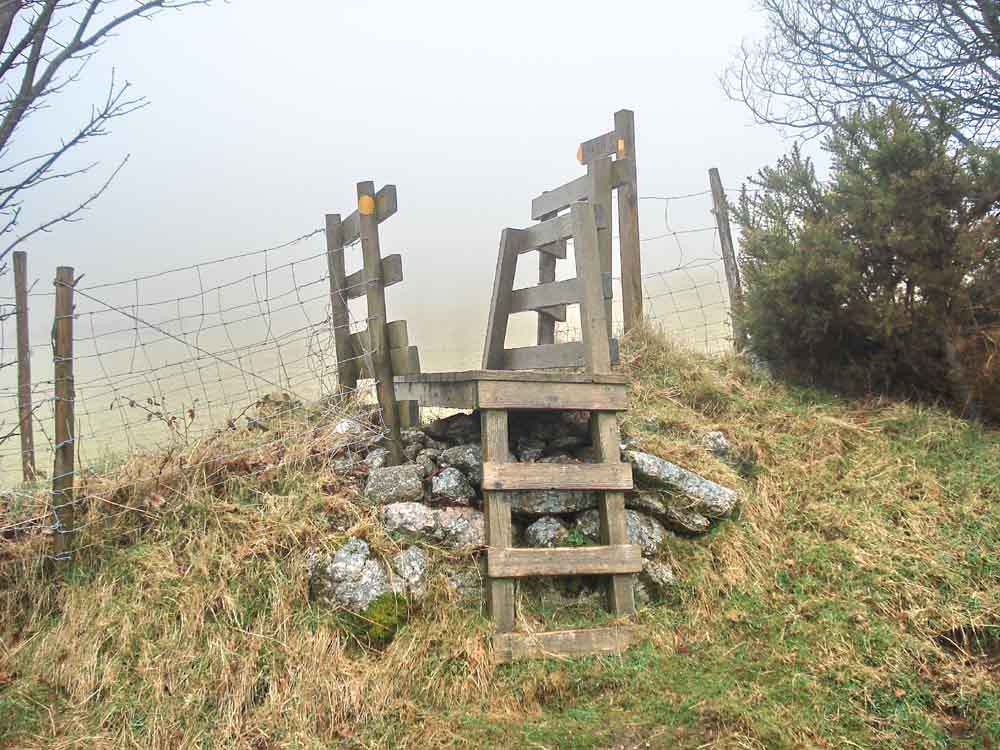
A stile encountered on the walk.
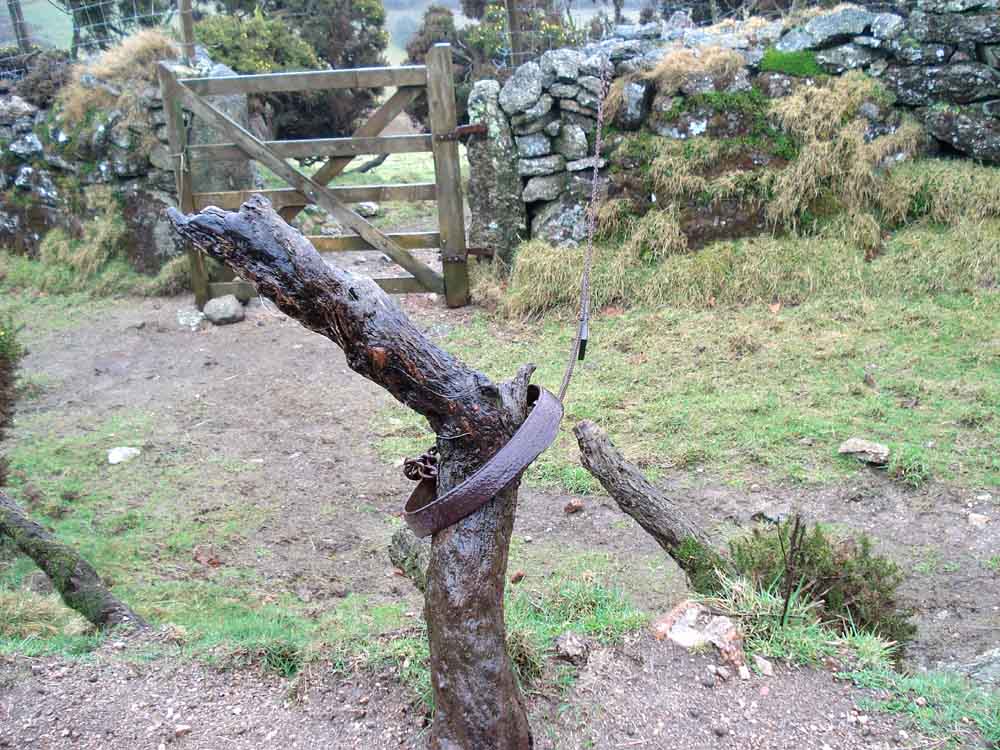
A local way of blocking a lane .....

Looking down the blocked, sunken lane.
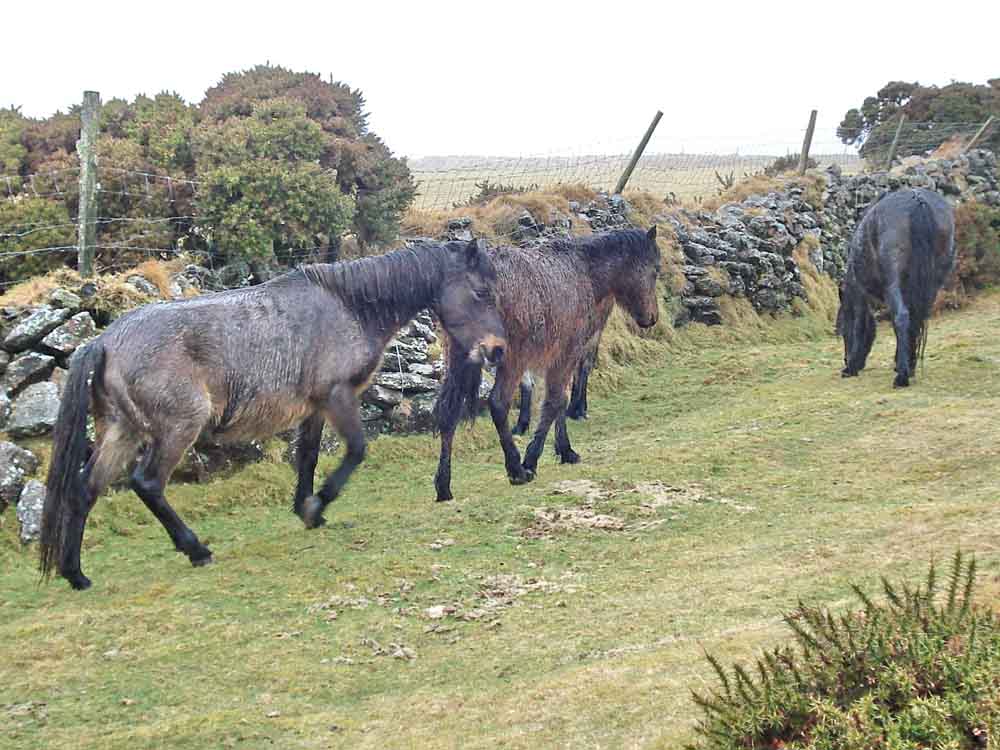
Thoroughbred Dartmoor ponies, all one colour .....
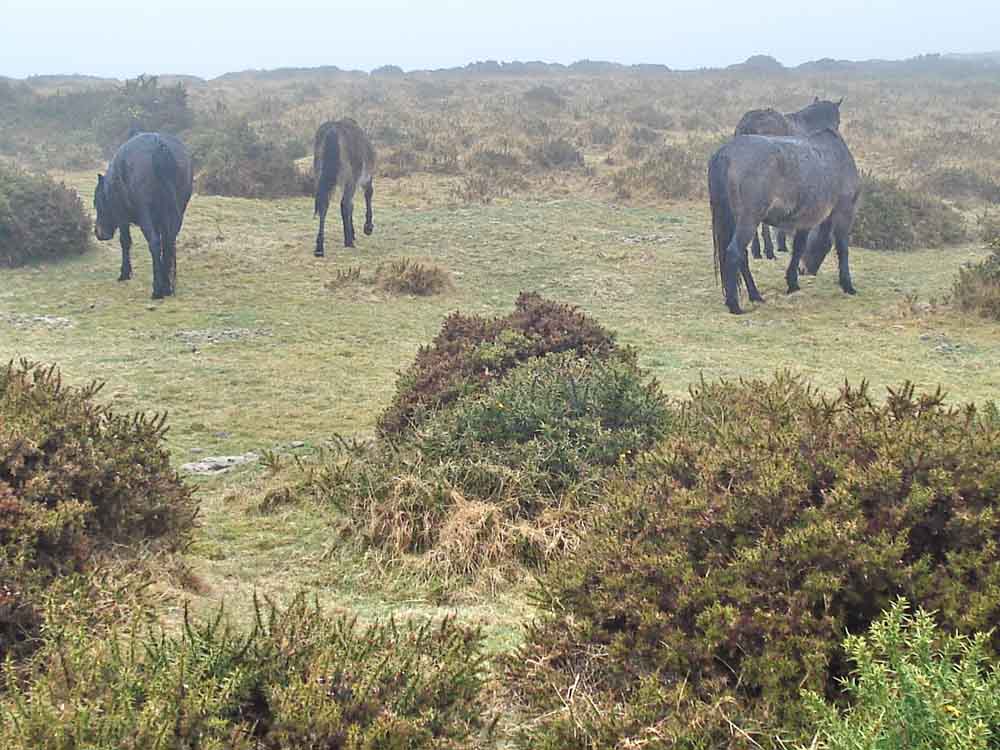
.... moving away from us, into the mist.
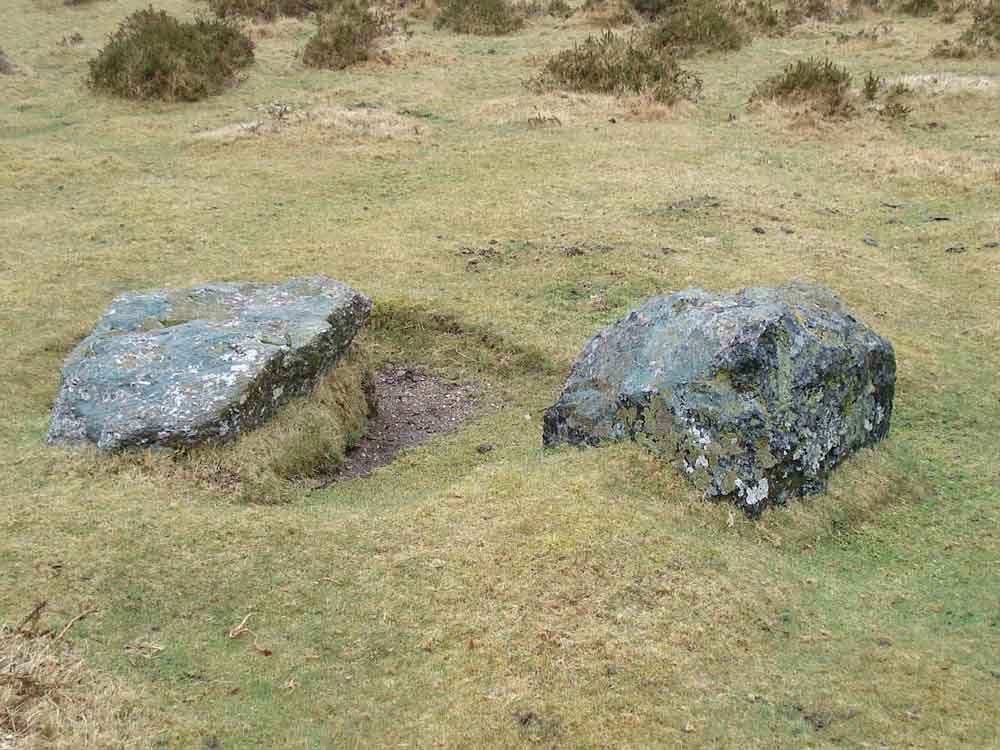
Two stones at approx. SX 707 775. The stone on the right is blue in colour: it is "Beside the Church Way at the corner of the Kingshead enclosures and is a large rounded boulder known as the Blue Stone � more often erroneously called Blue Post - a bond mark of Widecombe Town Manor. This is from Mike Brown�s �Guide to Dartmoor � CD.
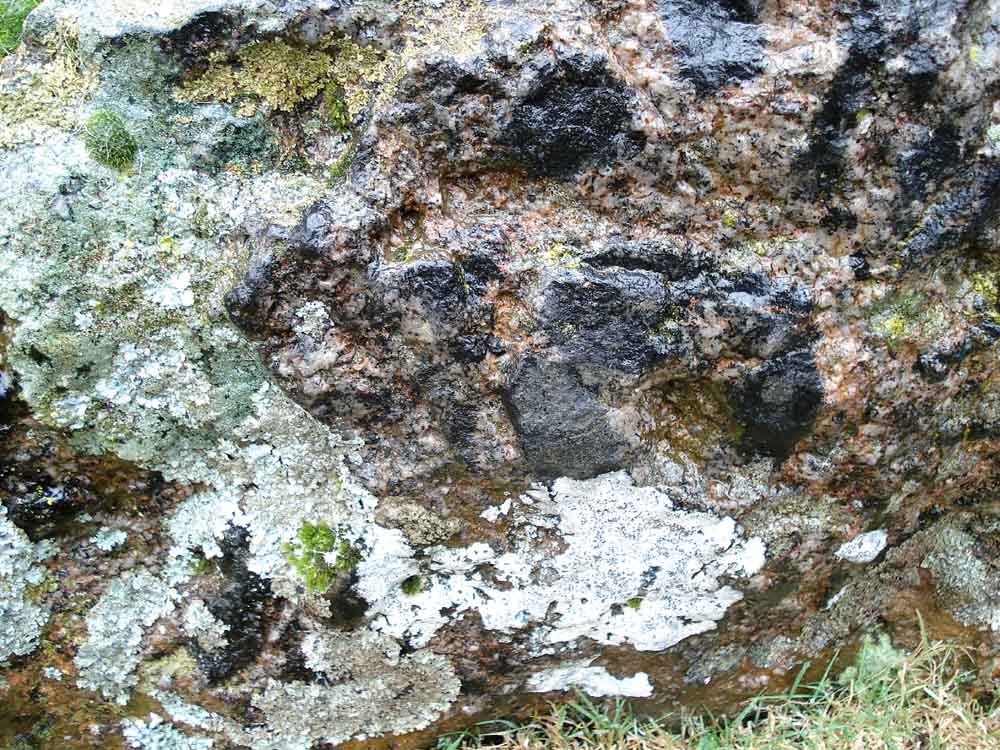
The reason for the blue stone - it is not ordinary granite .....

Close-up of a thallose lichen on the blue stone .....

Close-up of a green, globulose lichen on the blue stone.
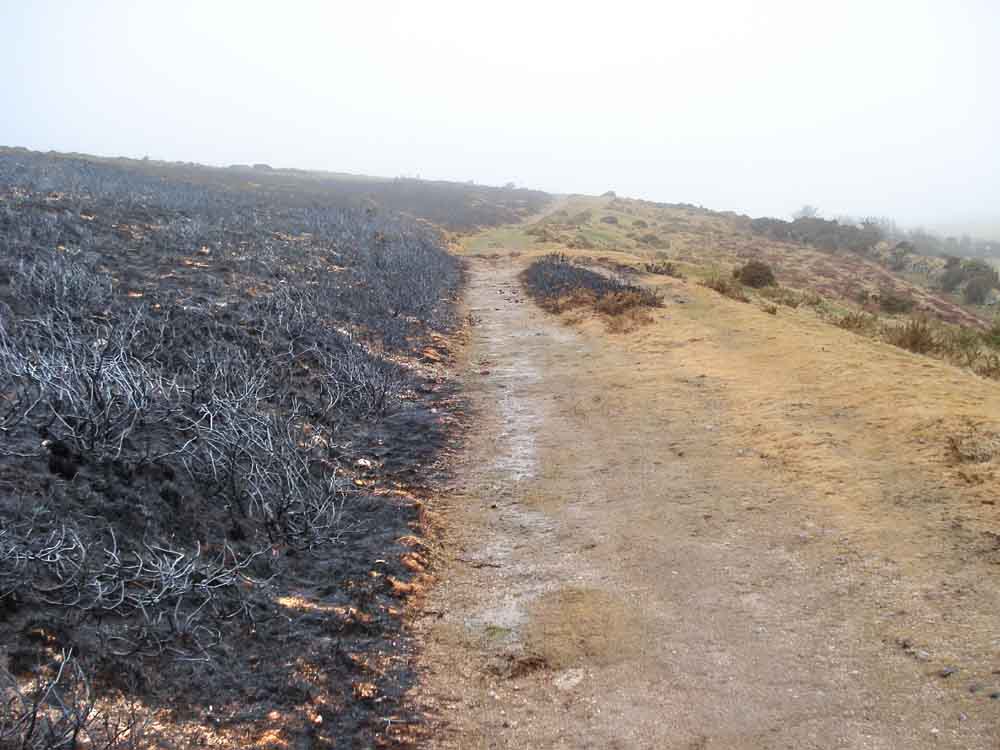
Looking back along the path, with swaled (burnt) gorse on the left .....

An island of gorse untouched by the fire, there is a natural firebreak around it .....
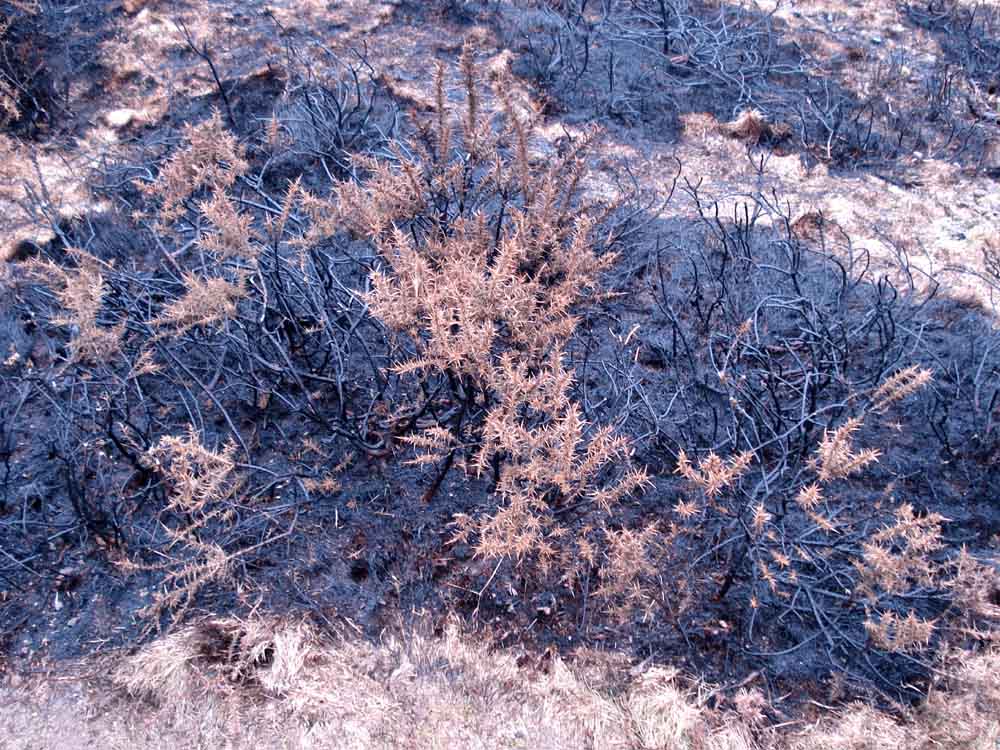
Remnants of gorse in a plant that was mostly burned.
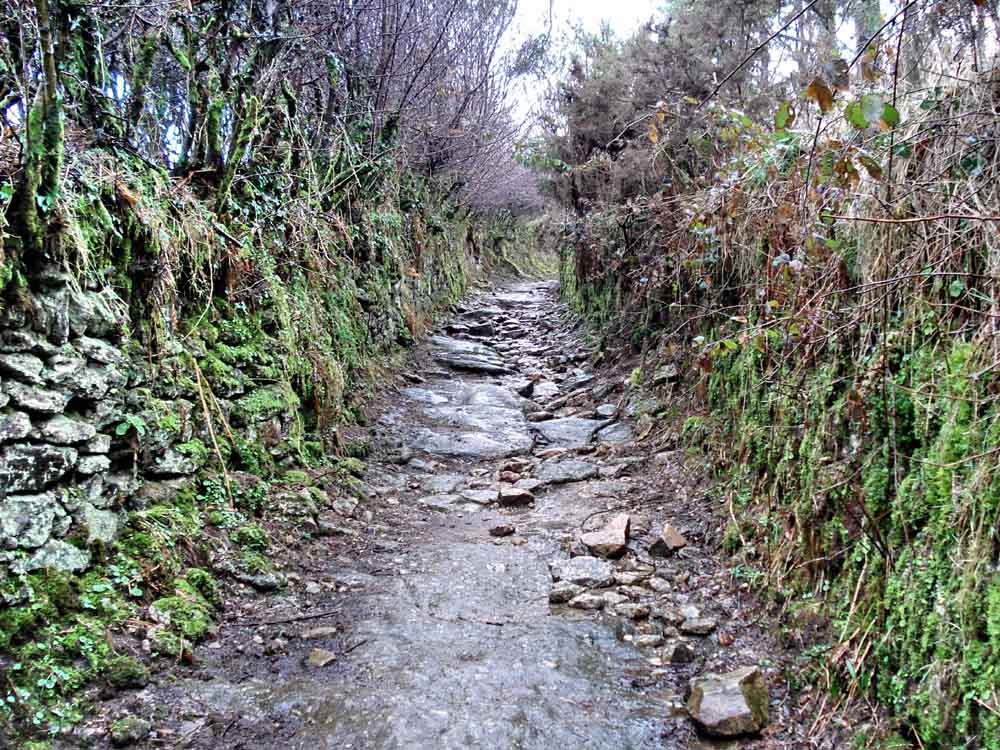
Another sunken lane area.

A slotted gatepost .....

Overview of the gateway, with its modern gate.
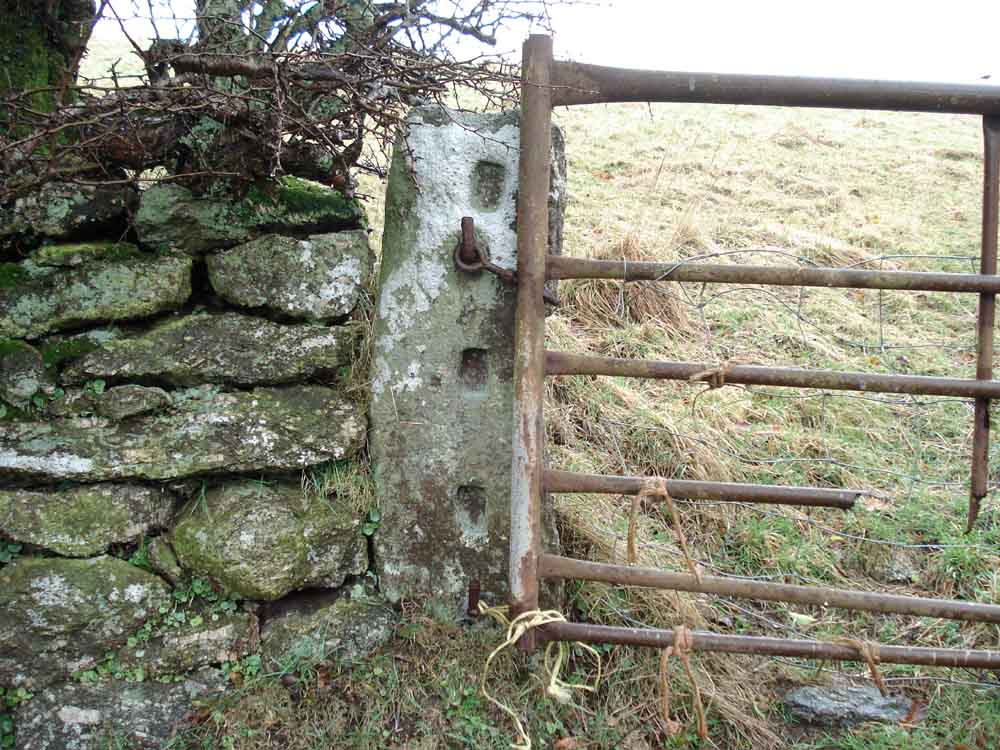
Another slotted gatepost, now used for a modern gate with metal hinges inserted into it.
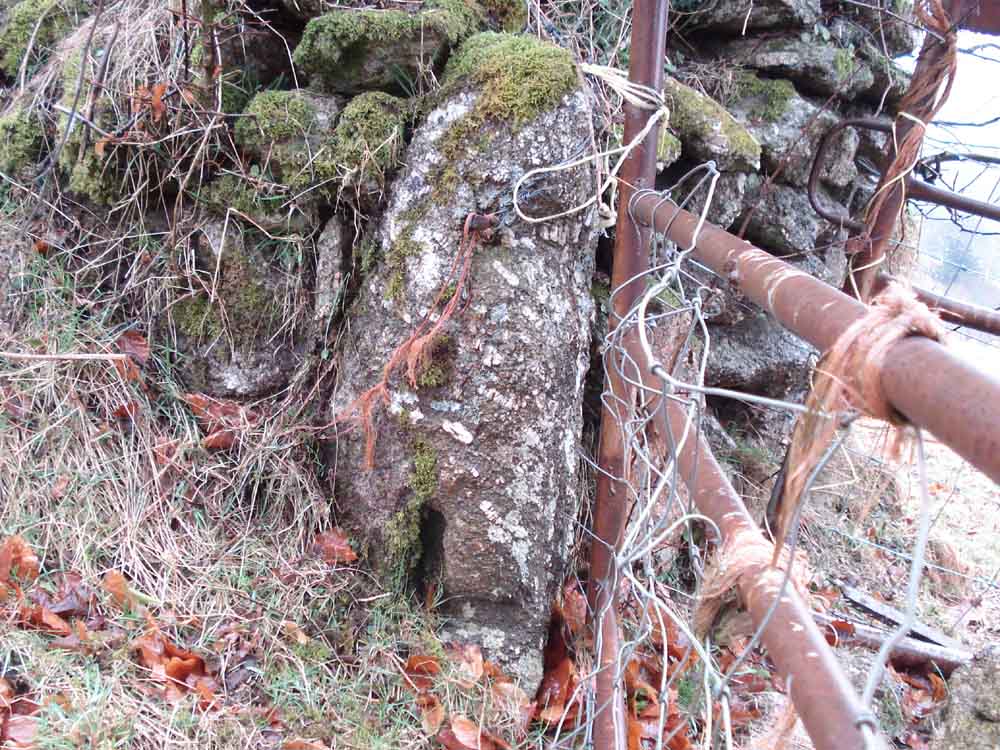
Yet another slotted gatepost .....
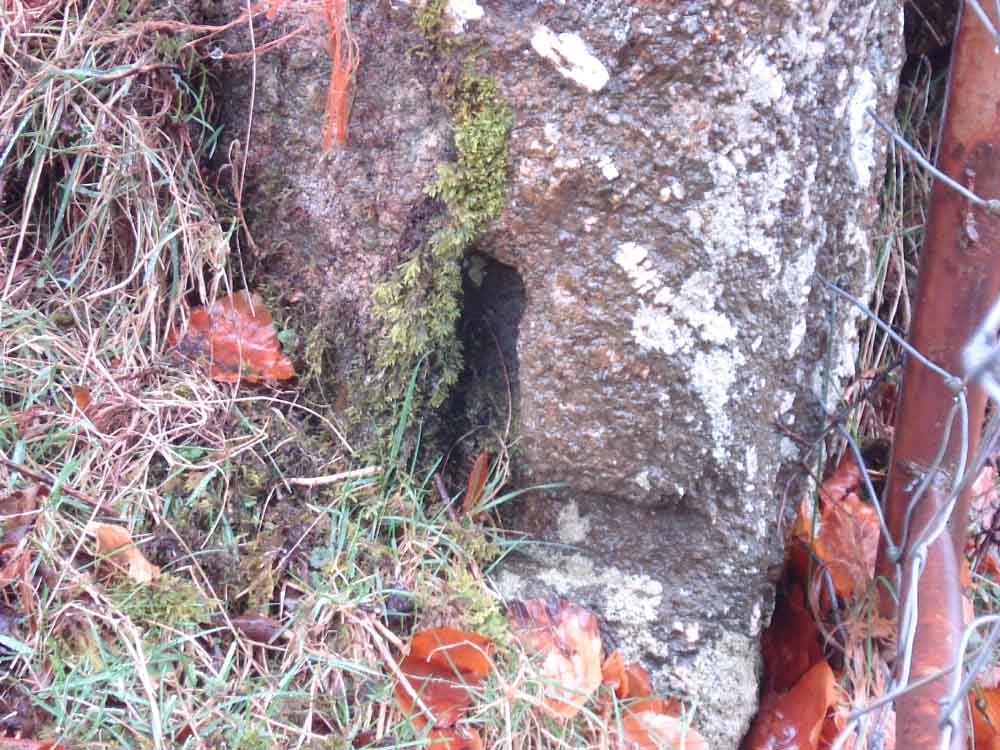
Detail of a slot.
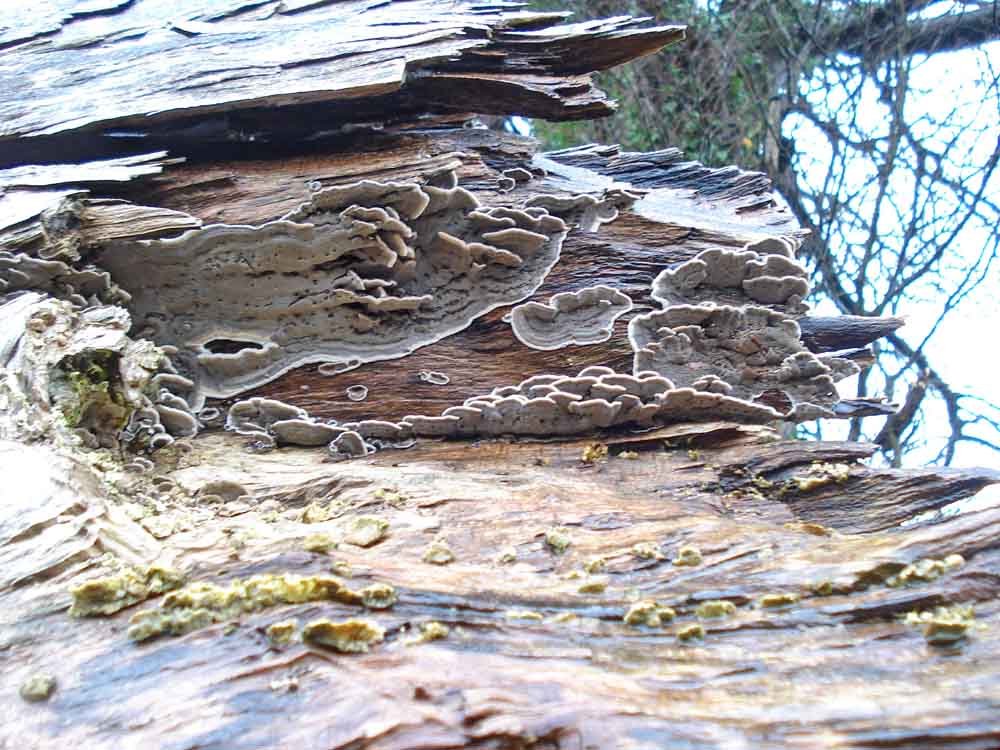
Fungus spreading on a large fallen tree trunk .....
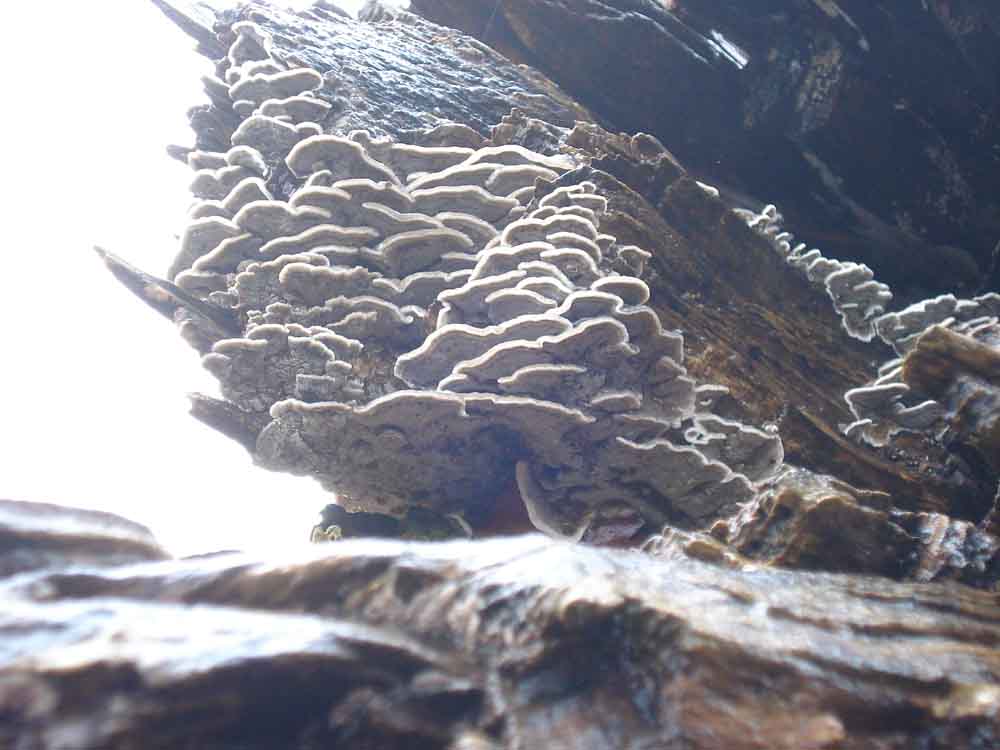
Fungus seen end-on.
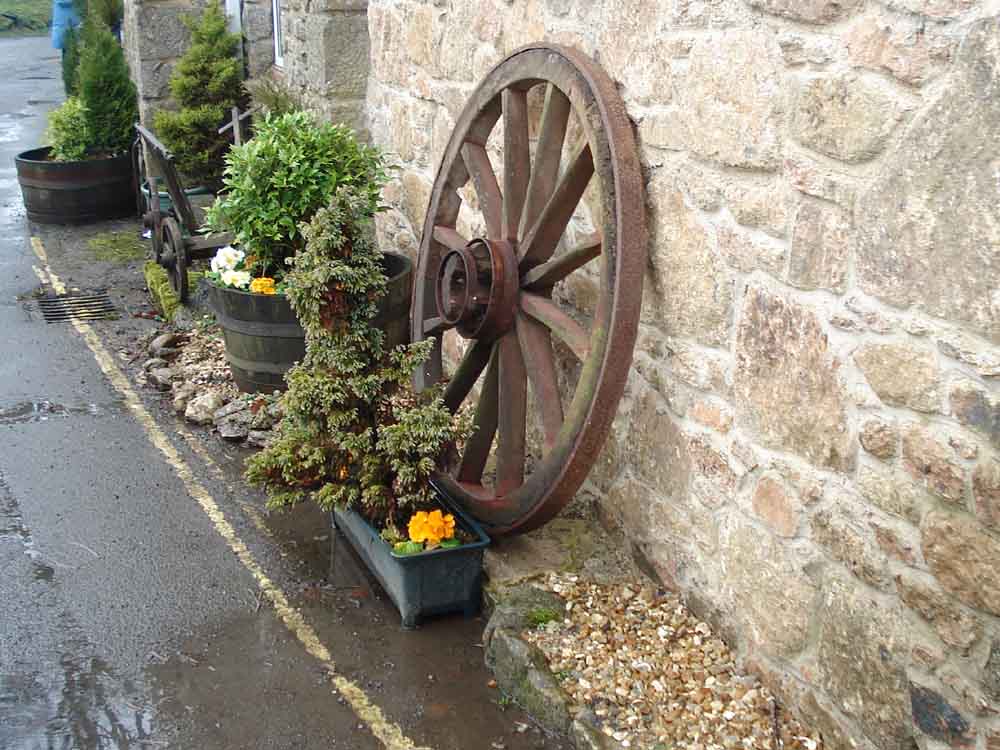
Seen in Widecombe .....
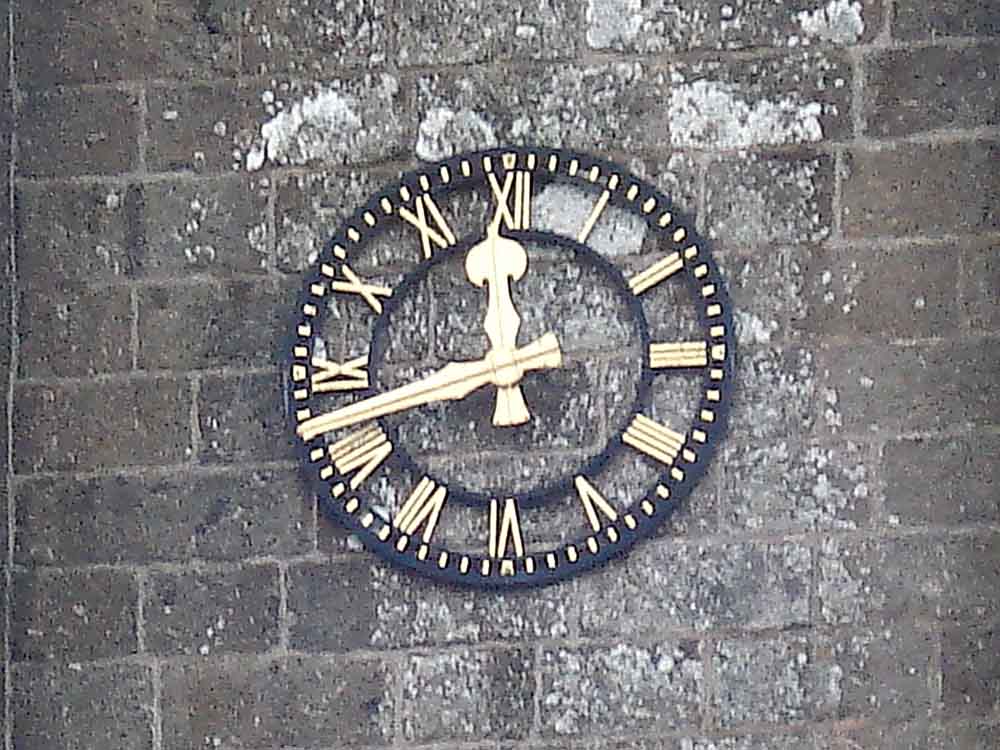
The church clock.
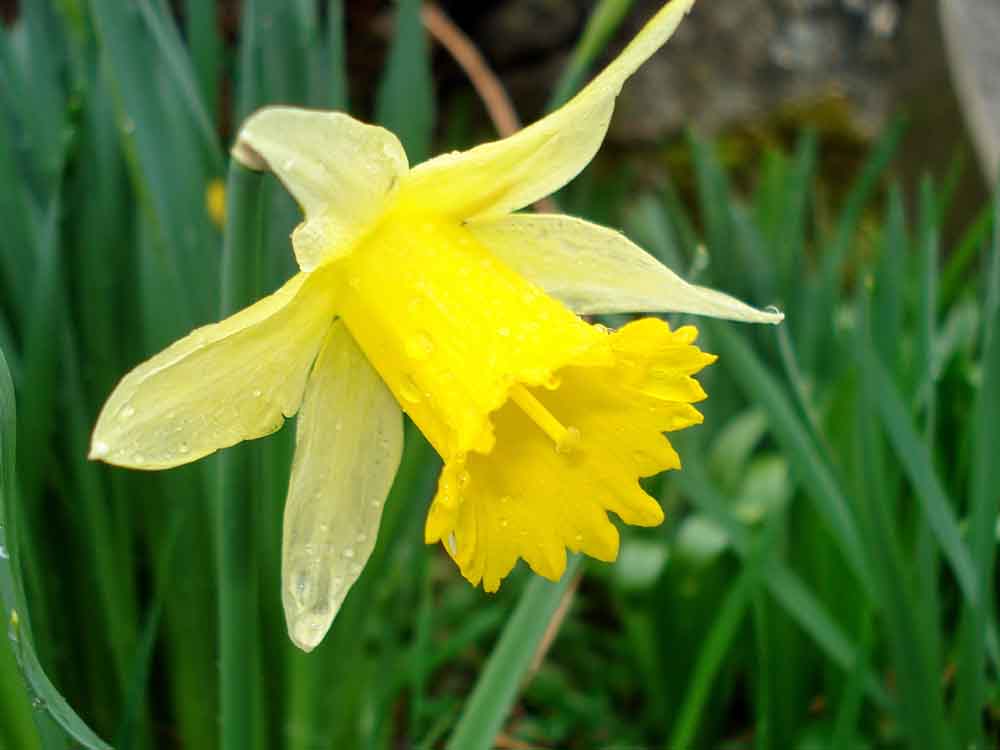
Wild daffodil in churchyard .....

Ditto.
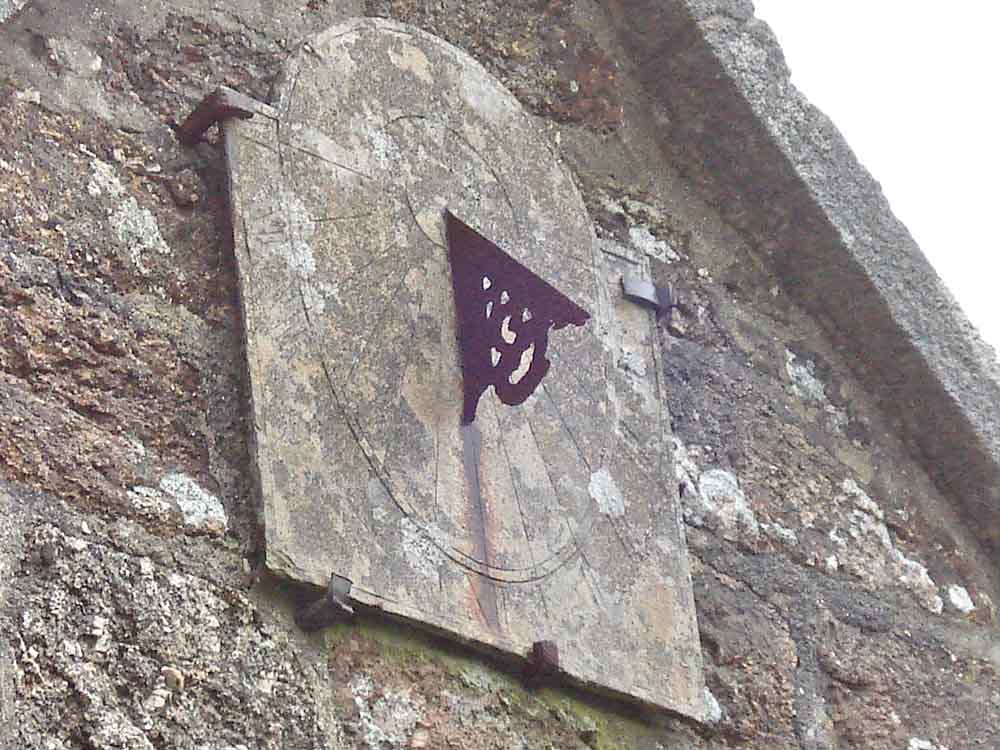
Sundial above the church door - it was difficult to tell the time today!
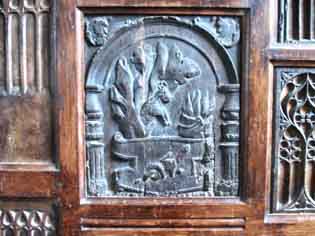 |
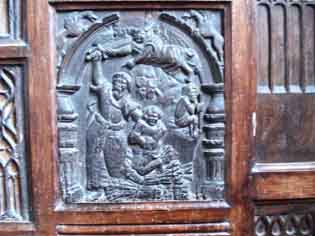 |
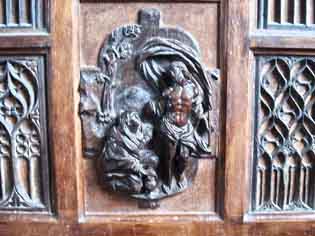 |
| Inserts in an old screen near the back of the church. | ||
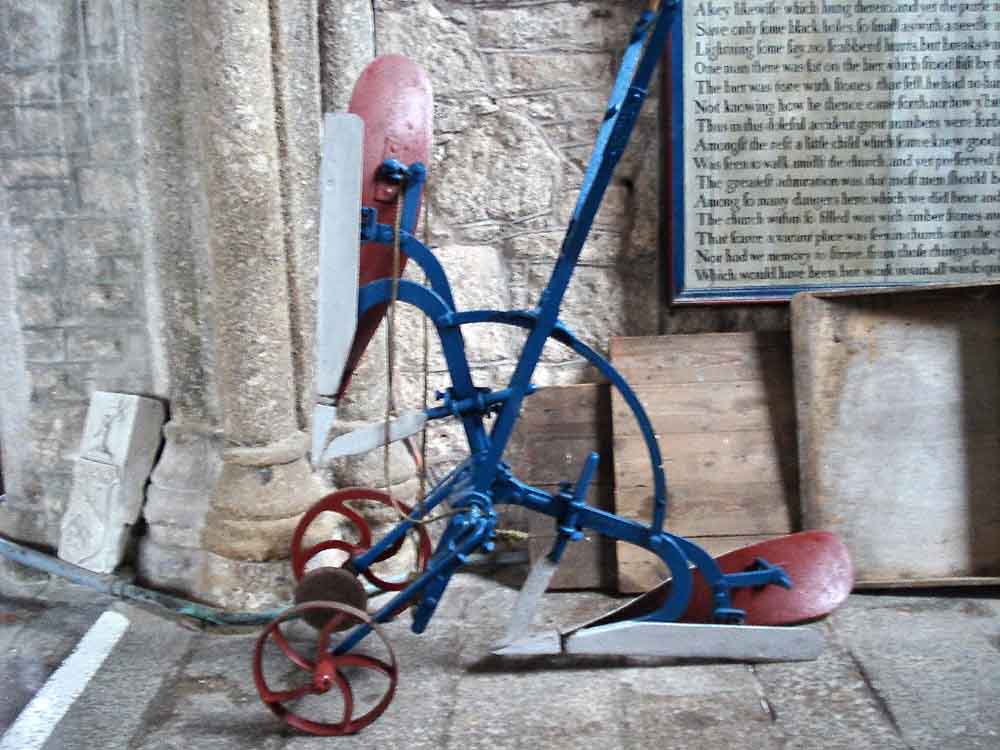
A quite unique plough for these days - a turn-over plough for working in both directions in a field.
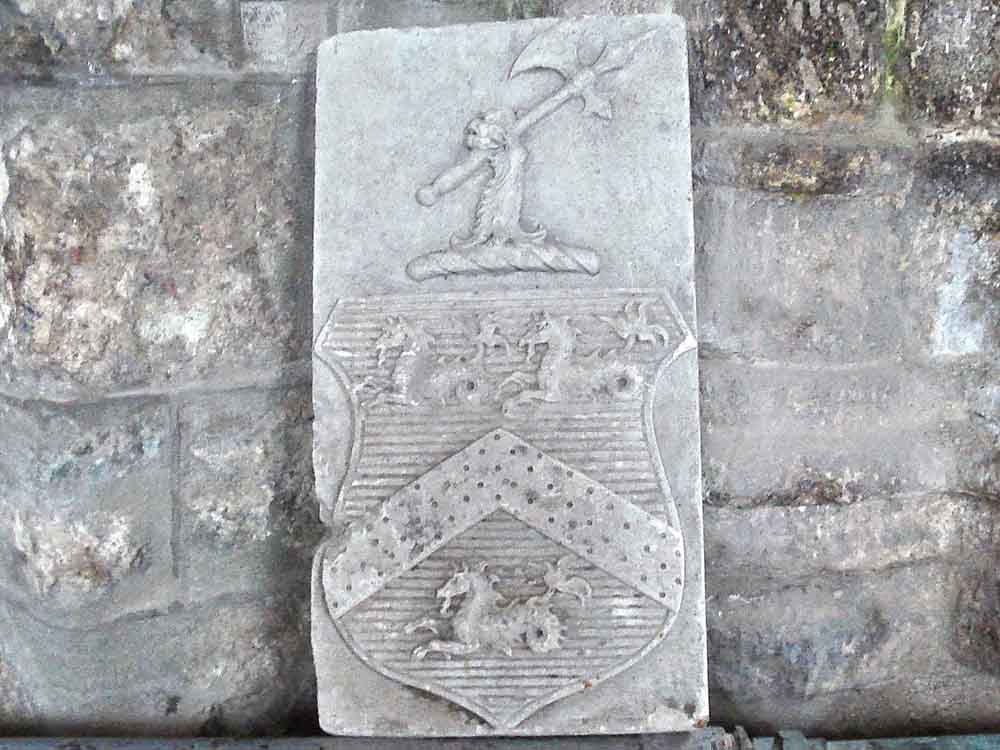
The Tucker Stone .....
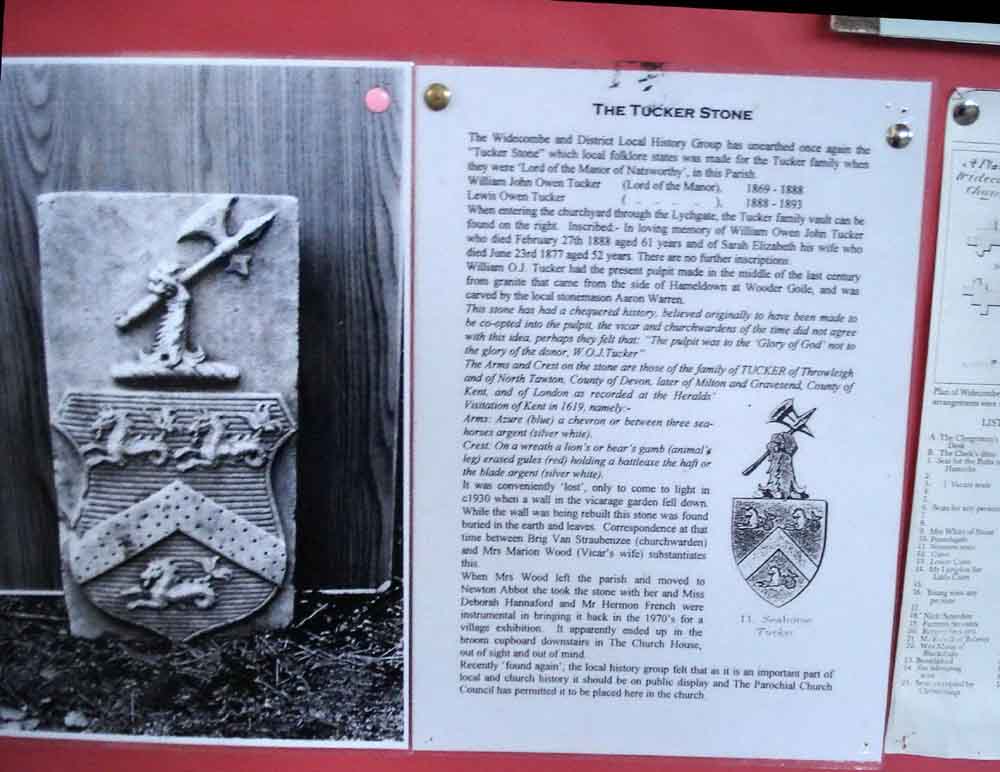
..... ands its description, although it is difficult to read it here. Seen near the back of the church.
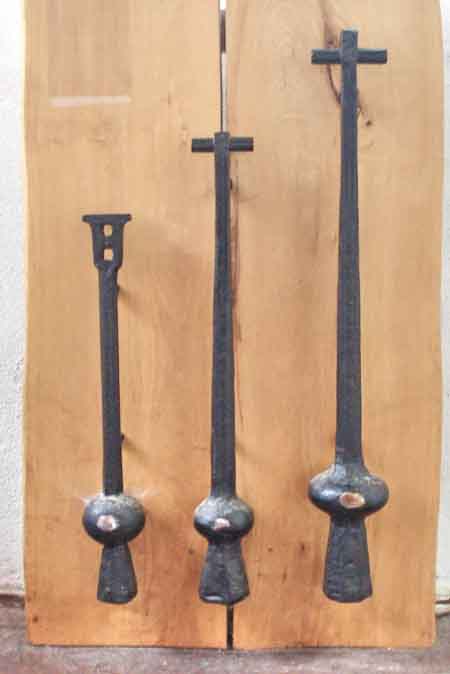 |
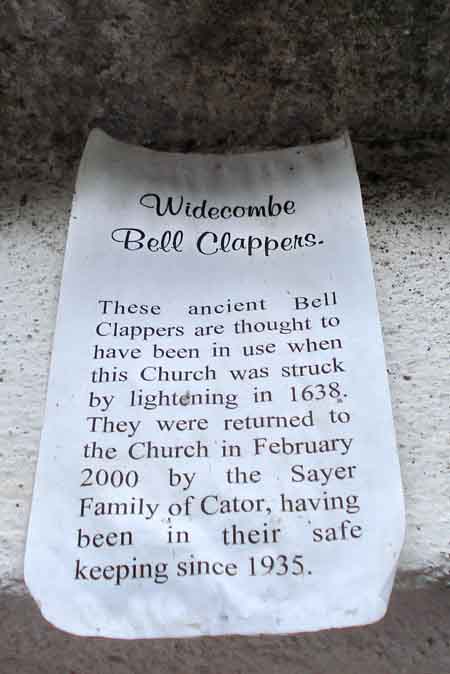 |
| Bell clappers, believed to have been in use in 1638 when the tower was struck by lightning. | |
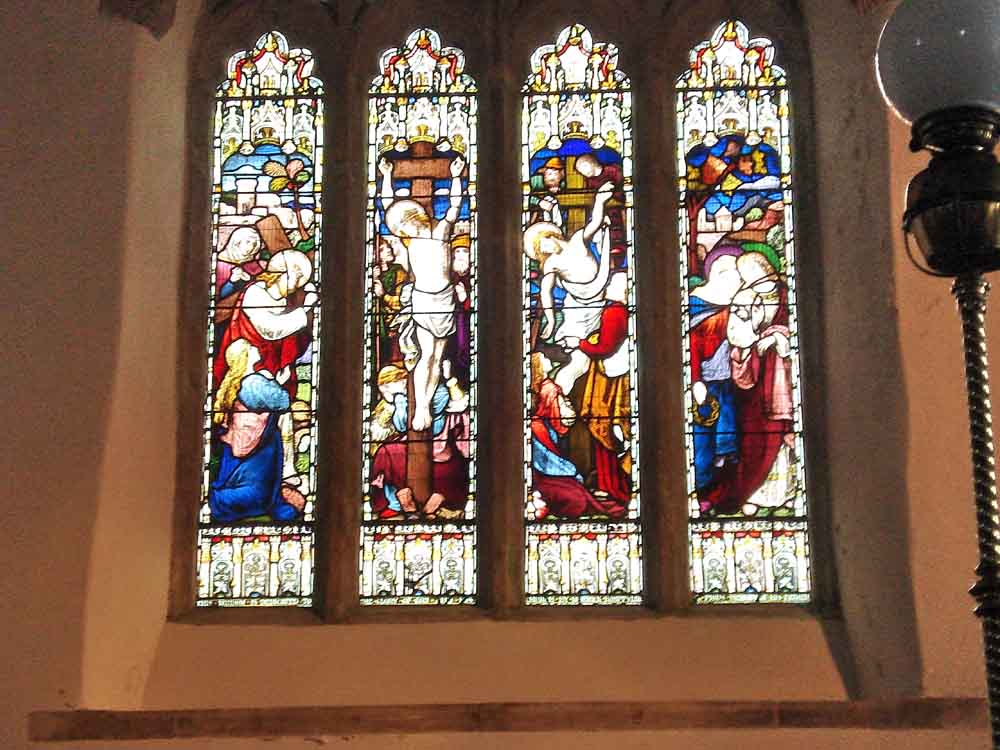
The stained glass window behind the main altar .....

Stained glass window to the left of the main altar.
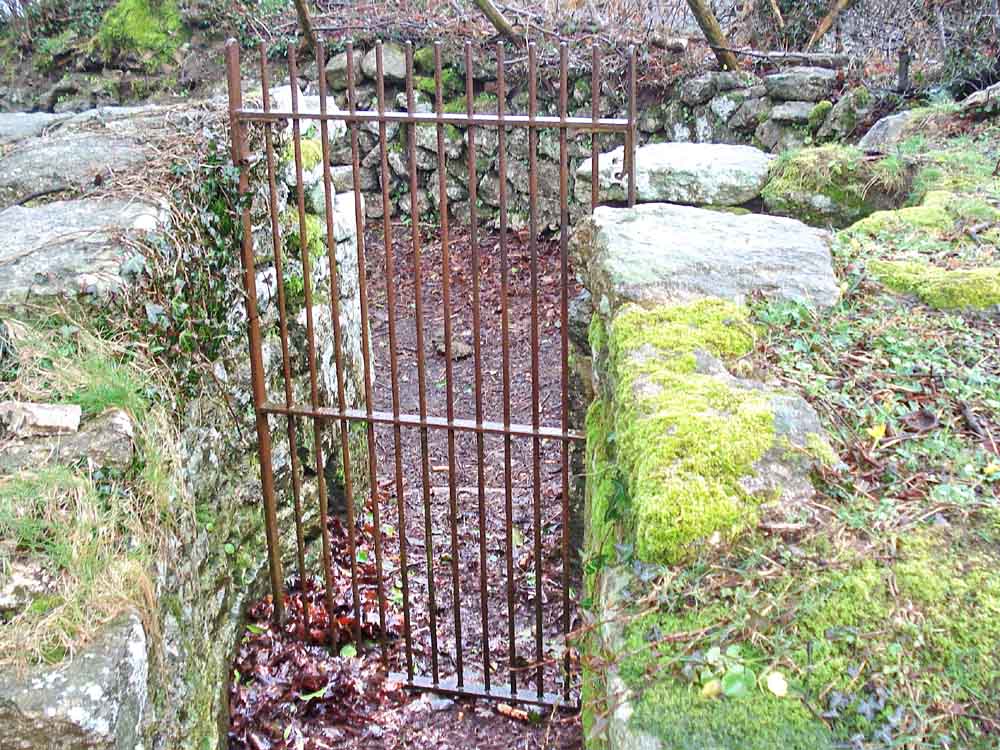
The kissing gate from the back of the church leading to the main road.
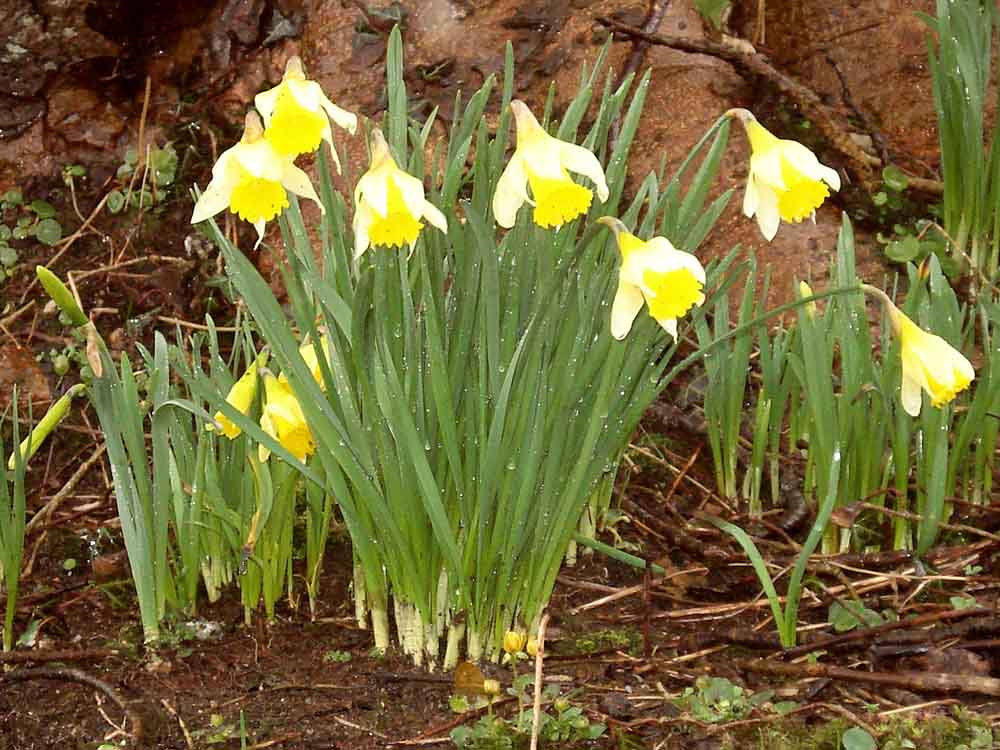
Wild daffodils again.
MAP: Red = GPS satellite track of the walk.
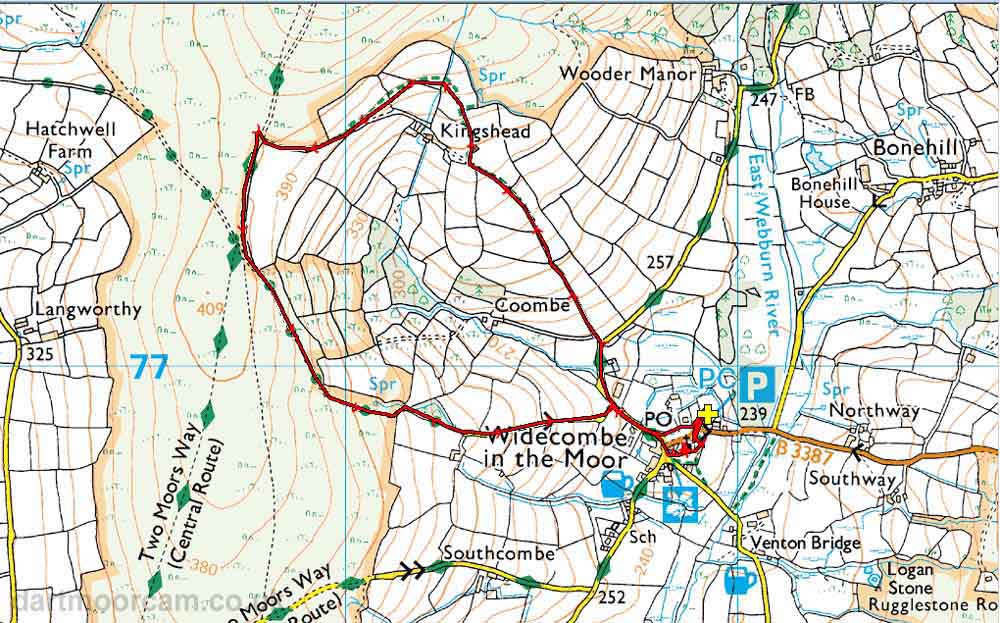
Ordnance Survey © Crown copyright 2005. All rights reserved. Licence number
100047373.
Also, Copyright © 2005, Memory-Map Europe, with permission.
Widecombe was accessed from the A38 from Plymouth using the Newton Abbot exit after Ashburton and following the signs to Sigford, then via these junctions: Hooks Cross (do not turn right for Sigford), Owlacombe Cross, Halshanger Cross, Cold East Cross and Hemsworthy Gate junctions. Parking is at the P symbol on the map, on entering the village, with toilets. Widecombe can also be reached from Tavistock.
Statistics
Distance - 4.09 km / 2.5 miles
All photographs on this web site are copyright
©2007-2016 Keith Ryan.
All rights reserved - please
email for permissions